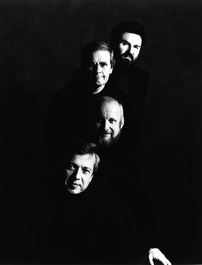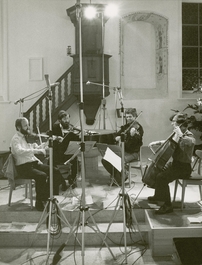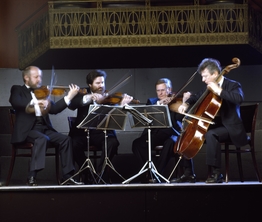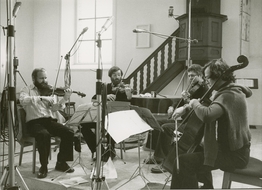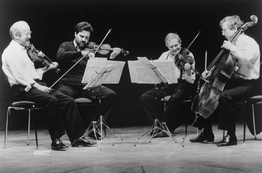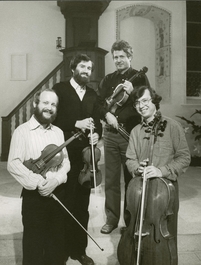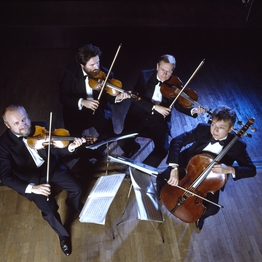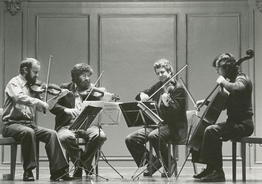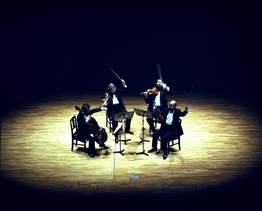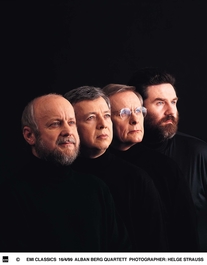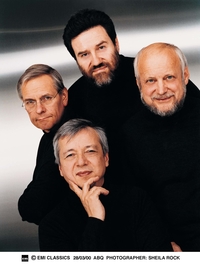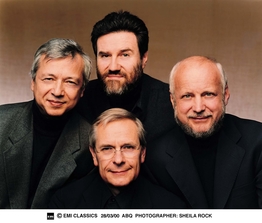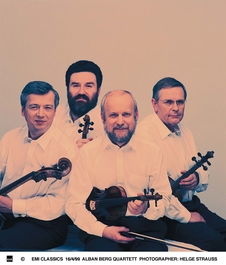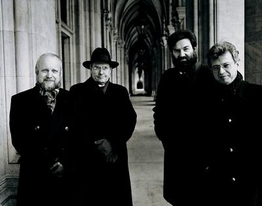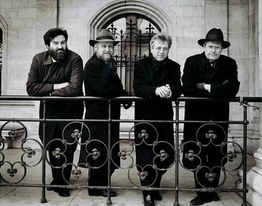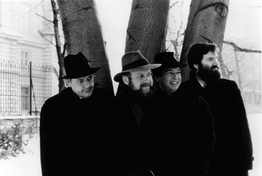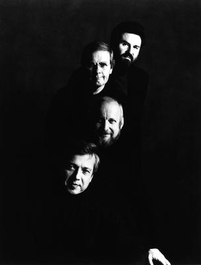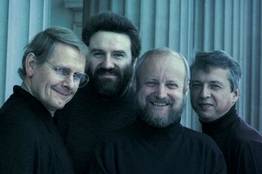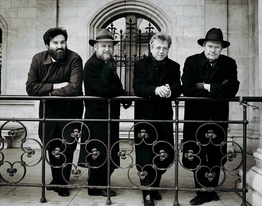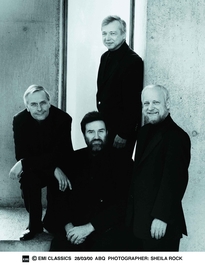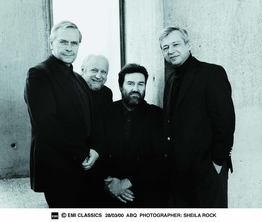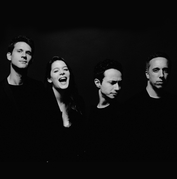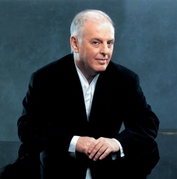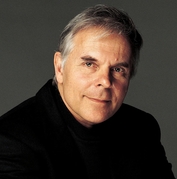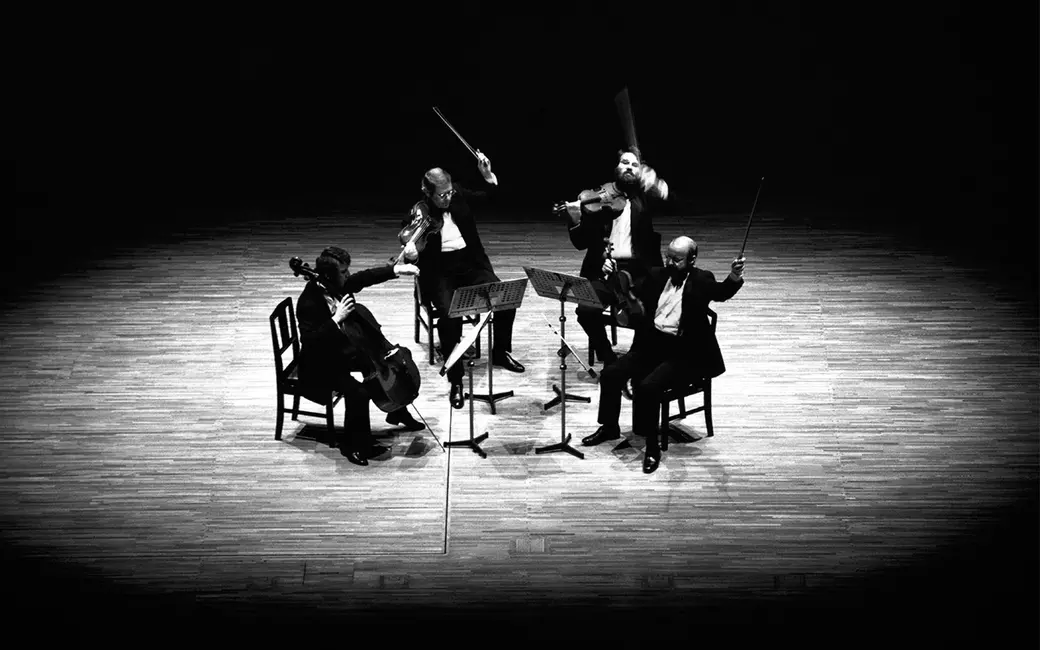
Alban Berg Quartett
Sobre nosotros
For nearly forty years the Alban Berg Quartett has been considered one of the most famous quartets of all time, performing regularly in music capitals and major festivals throughout the world. They had their own concert series at the Vienna Konzerthaus (where they made their debut in 1971 and where they are now Honorary Members), at the Royal Festival Hall London, (where they are Associate Artists), at the Opera Zurich, the Theatre des Champs-Elysées in Paris, the Cologne Philharmonie and at the Alte Oper Frankfurt.
Since they were founded the Alban Berg Quartett have been prolific recording artists and have received over thirty major international awards, including the Grand Prix du Disque, the Deutsche Schallplattenpreis, the Edison Prize, the first International Classical Music Award, the Japan Grand Prix, and the Gramophone Magazine Award. Many of these recordings are regarded as definitive by public and critics alike.
Among their many recording projects have been the complete quartets by Beethoven, Brahms, Berg, Webern and Bartok, the complete late Mozart and late Schubert quartets, Haydn, Dvorak, Schumann, Ravel, Debussy, Stravinsky, von Einem and Haubenstock-Ramati, as well as live recordings from the Carnegie Hall, New York, the Opera Comique in Paris, the Queen Elizabeth Hall in London and particularly from the Konzerhaus in Vienna. Following their original Beethoven cycle recorded in the studio some years ago, the live recording of their Beethoven cycle at the Konzerhaus during the Vienna Festival in 1989 has been released on CD and video. The quartet has also made live recordings of works by Janacek, Lutoslawski, Berio, Schnittke, Urbanner and Rihm (most of which are dedicated to the Alban Berg Quartett), as well as the Dvorak Piano Quintet (with Rudolf Buchbinder), Schubert’s late quartets, Brahms’ Clarinet Quintet and String Quintet op. 111, and Mozart’s Piano Quartet in E flat major and Piano Quintet KV 414 with Alfred Brendel, the quartets op. 51 and op. 106 of Dvorak and Mendelssohn’s quartets Op 12 and Op 13.
Press reviews for the Alban Berg Quartett confirm their reputation: ‘Certainly one of the greatest ensembles in chamber music’ (France Soir, Paris), ‘Stunning perfection’ (Washington Post), ‘One of the greatest ensembles of our time’ (San Francisco Chronicle), ‘A wonder by the name of the Alban Berg Quartet’ (Presse, Vienna), ‘Few if any quartets can match their strength and assurance in the Viennese classics and romantics’ (Times), ‘The Alban Berg Quartet have achieved legendary standards in chamber music playing’ (Frankfurter Allgemeine Zeitung), ‘The Alban Berg Quartet overwhelms with Beethoven’ (J. Kaiser, Süddeutsche Zeitung).
More important to the quartet than the superlative praise in the press and the enthusiasm of the public is their self-appointed mission of giving the most harmonious interpretation of the works they perform and of extending their repertoire from the classical to the avant-garde; the name ‘Alban Berg’ symbolizes this commitment.
The Alban Berg Quartett also took responsibility for the training of young musicians; they are all professors at the ‘Universität für Musik und darstellende Kunst’ in Vienna and since 1993 also at the ‘Hochschule für Musik’ in Cologne as successors of the Amadeus Quartet, and are as dedicated to this task as they are to their own musical work and performance. Among their students, leading the new generation of chamber musicians, are the Amaryllis, Artemis, Belcea and the Schumann quartets.
Following an international farewell tour, the Alban Berg Quartett took its final bow in July 2008.





